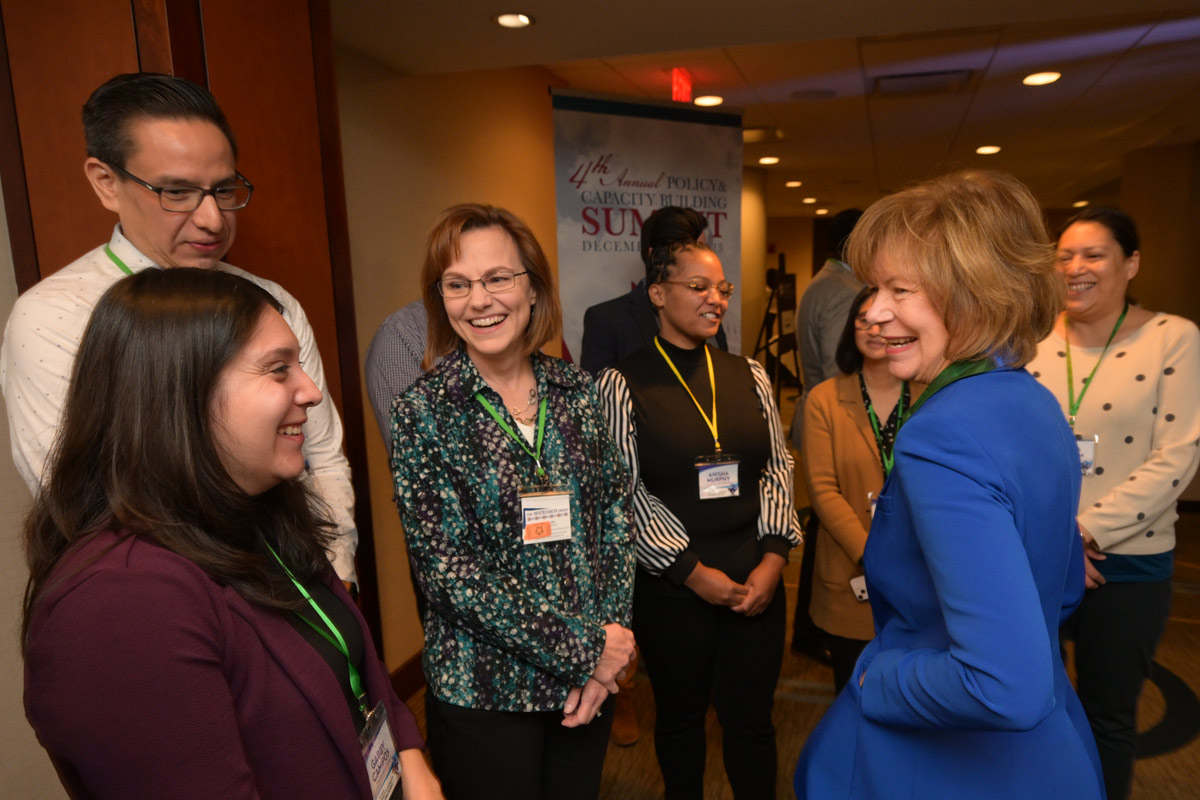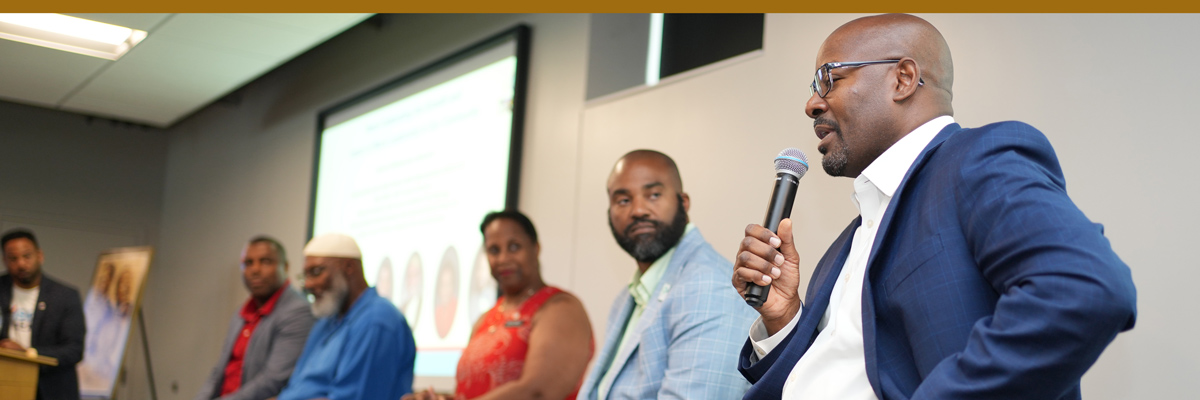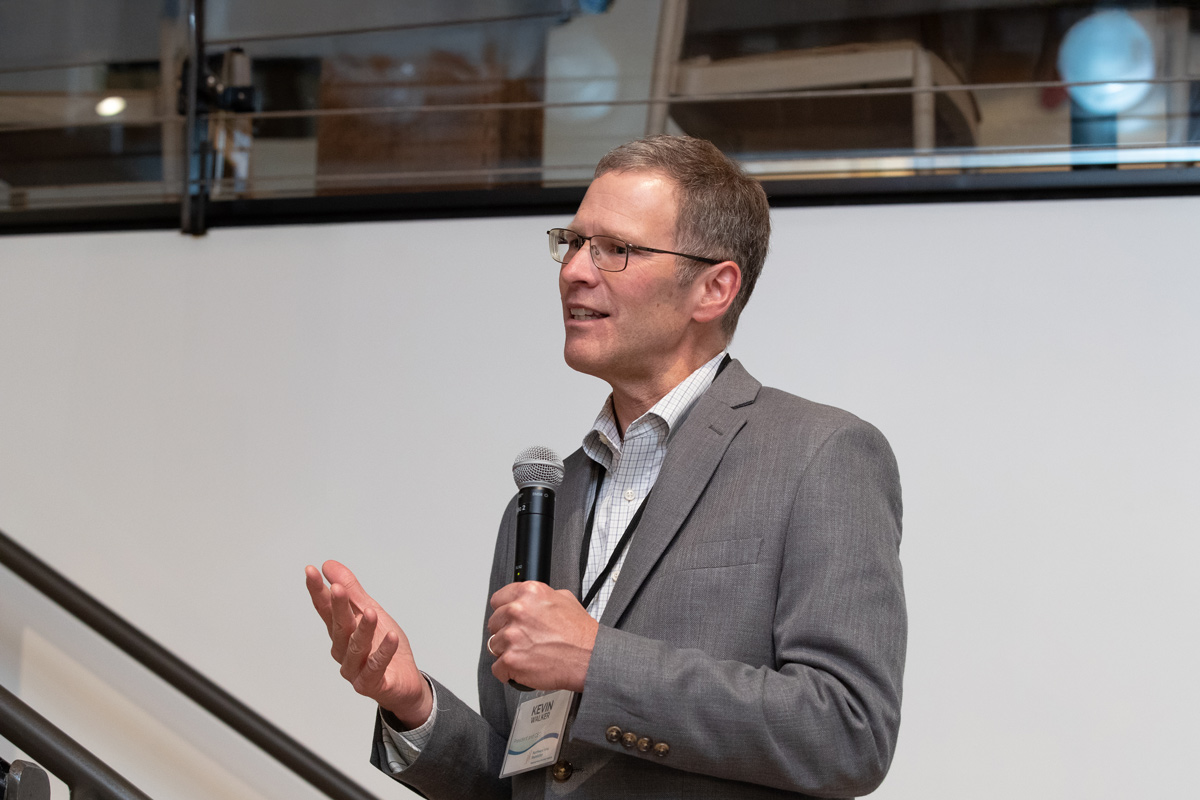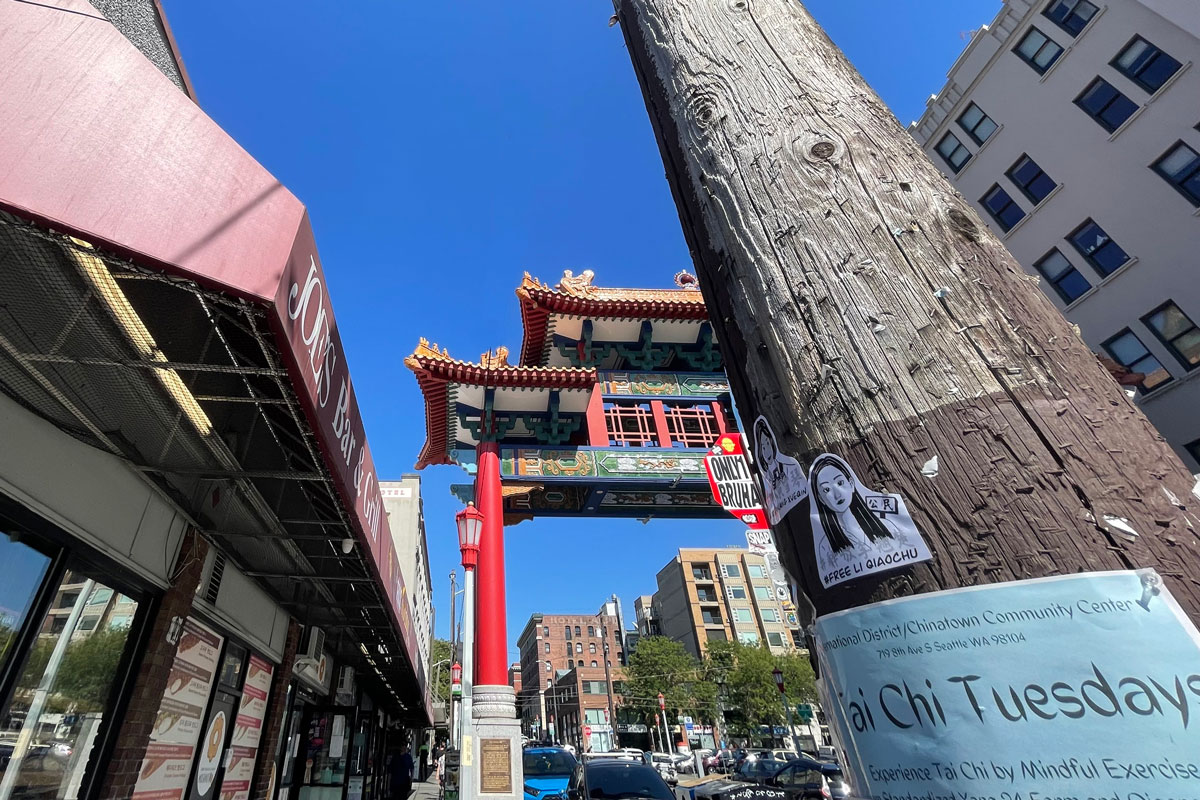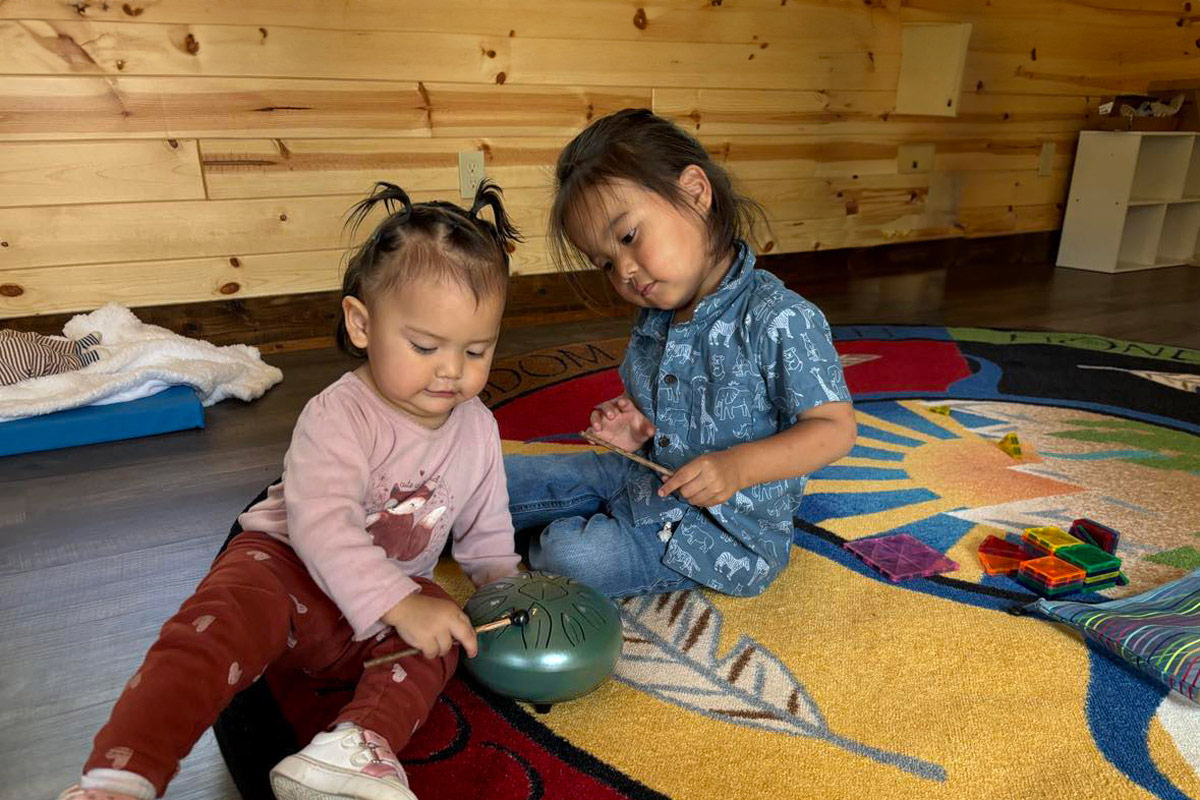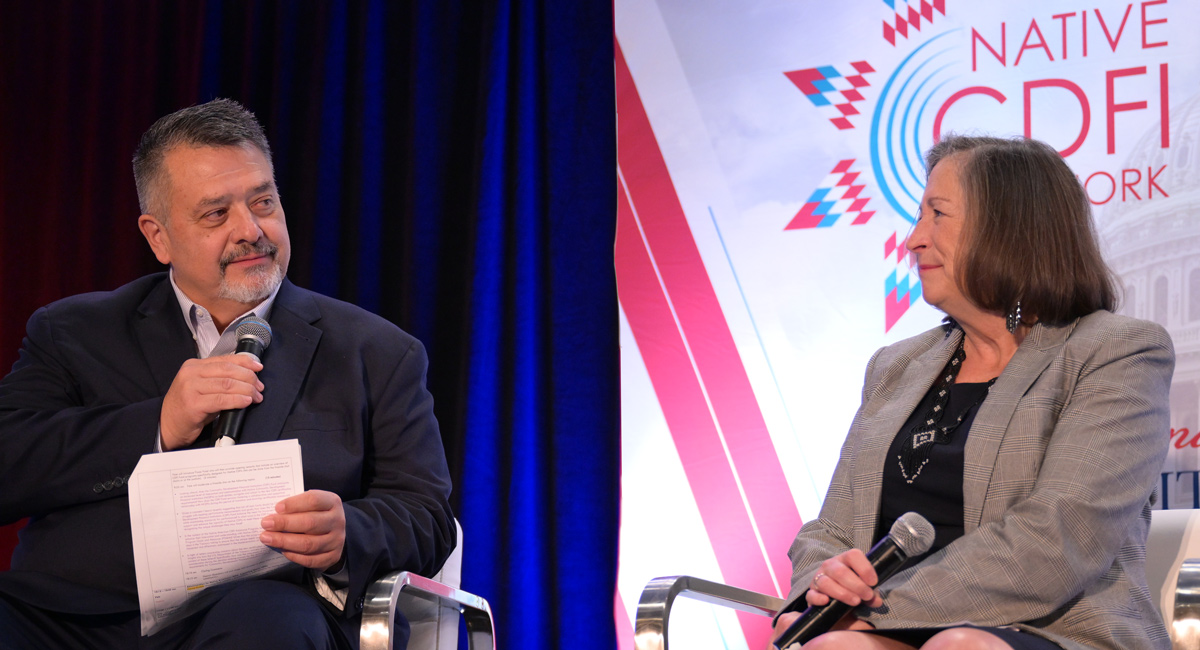
NCN CEO Pete Upton (Ponca Tribe of Nebraska) and US Treasurer Chief Lynn Malerba (Mohegan Tribe), at NCN’s 2023 Policy & Capacity Building Summit, discuss the importance of Native CDFI input as the Treasury strives to better serve Indian Country. Photo courtesy of NCN.
Formed in 2009, NCN is a member organization that works to grow and strengthen Native CDFIs through policy advocacy, capacity building, and access to capital to support the economic prosperity of American Indian, Alaska Native, and Native Hawaiian communities.
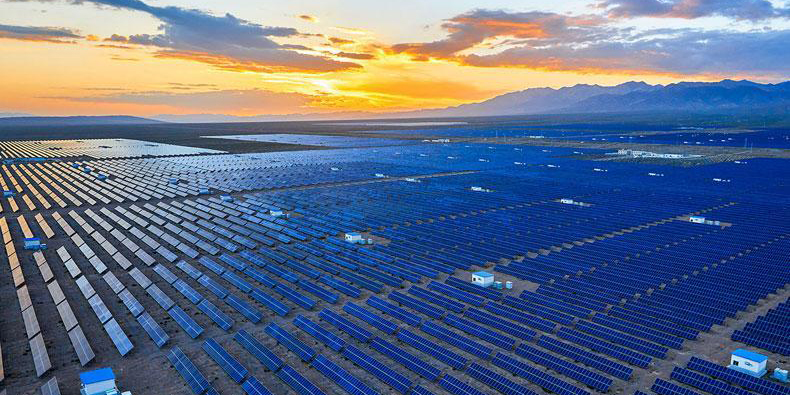
Solar panels from Navajo Power, a loan relative of NDN Fund (an NWAF grantee and NCN member), bring solar power to the Navajo Nation. Photo courtesy of NDN Fund.
NCN was selected to receive CCIA funds to enable its community lenders to finance clean energy projects for tribal governments, enterprises, Native-owned small businesses, and Native consumers.

NCN members, many of whom call our region home, gathered in Washington, DC, for NCN’s 2022 Policy & Capacity Building Summit. Photo courtesy of NCN.

